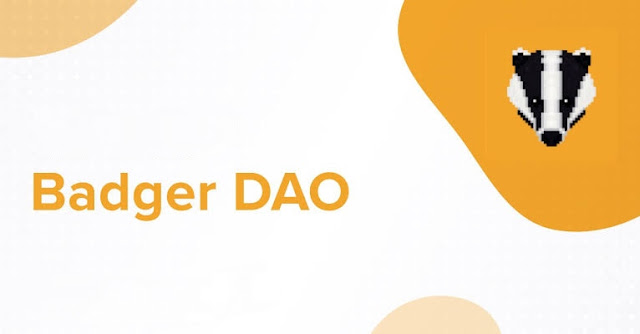Badger DAO (BADGER)
What Is Badger DAO (BADGER)?
Badger DAO is an open-source, decentralized automated organization that is dedicated to building products and infrastructure of simplifying the use of Bitcoin (BTC) as collateral across many smart contract platforms.
The platform is a shared space where the developers, known as Badge Builders, have the ability to collaborate and implement Bitcoin as collateral to as many blockchains as possible. A developer can earn a percentage of the fees and BADGER tokens from the developer mining pool for every implementation. The mainnet was launched on December 3, 2020.
A builder can be a single developer, a group of developers, or even a company. There are no fixed obligations to participation requirements, and anyone can create. The pillars of Badger DAO include the Badger Builders, the community-created products, the Dedicated Badger Operations team, the fairly initial distribution of the BADGER tokens for governance and the fact that all of the code is open-sourced.
Who Are the Founders of Badger DAO?
The founder of Badger DAO is Chris Spadafora. He is a long-term crypto enthusiast, investor, and partner at Angelrock.
What Makes Badger DAO Unique?
Badger DAO has two main products: Sett and DIGG. Badger DAO is a community-driven project; as such, before any products are developed they first need to be pitched to, voted on and approved by token holders.
Sett is a decentralized finance (DeFi) aggregator that has flash loan mitigation measures focused on tokenized BTC through five strategies. Once a user makes a deposit, they can earn a yield as the protocol’s smart contract does the work.
In order to incentivize this participation, farmers that deposit tokenized BTC into the Sett vault earn BADGER and DIGG. Aside from a 0.5% fee, an additional 4.5% is deducted from the profits to cover gas and transaction costs.
DIGG is a non-custodial synthetic Bitcoin on Ethereum’s blockchain that is pegged to the price of BTC with a flexible supply and a re-base function. Its main goal is to remove centralized third parties.
How Is the Badger DAO Network Secured?
Badger DAO has passed the initial audit of its smart contracts by the Zokyo audit team with no critical issues found.
Badger DAO has established a security advisory committee that is composed of white hat hackers that regularly review the project’s ecosystem. Badger DAO also has plans to develop incentives that will reward public peer reviewers and to launch a bug bounty program.
How does Badger DAO work?
Badger functions primarily as a DAO. Anyone who holds its governance token, BADGER, has the ability to vote on proposals set forth by members of the community. The more BADGER a user owns, the more voting power they have and proposals that garner enough votes from the community are put into effect on its platform.
Badger has integrated multiple DeFi products into its platform to help make bitcoin a usable asset across blockchains. The development team has partnered with other DeFi projects such as Yearn, Ren, and Curve to bring these products to life.
SETTs
Also known as Sett Vaults, SETTs are pools of tokens where users can lock up their tokenized bitcoin and allow smart contracts to manage their holdings to generate a yield. In other words, SETTs are Badger’s version of an automated DeFi aggregator.
When users deposit tokens into a SETT, they receive bTokens in return. For instance, if users deposit BADGER in a Sett Vault, they would receive bBADGER in return. These bTokens are interest-bearing tokens that represent the user’s share of the assets in the SETT and can be used as collateral in various DeFi applications. Anyone that deposits in a SETT will receive yield paid out in the appropriate token (based on the parameters laid out in that specific SETT) along with BADGER tokens. BTokens can then be traded back for the original asset along with any earnings (minus a fee).
DIGG
DIGG is a decentralized “elastic-supply” cryptocurrency, pegged to the price of bitcoin.
Digg’s software programmatically adjusts the supply of its DIGG cryptocurrency through smart contracts that expand or contract the circulating DIGG supply in response to fluctuations in the price of bitcoin.
If demand for DIGG is high, the price of each token may exceed the price of one BTC so the Digg protocol automatically increases the supply of DIGG to bring its price back down in line with the market price of BTC. If the demand is low, the Digg protocol automatically decreases the supply of DIGG to have the inverse effect. The process of programmatically adjusting supply to change an asset’s price is called ‘rebasing’ and is applied across all wallets that hold DIGG tokens.
While the supply of DIGG is constantly changing in an “elastic” fashion, a token holder’s proportion of the total supply of DIGG remains stable. In other words, if you held 1% of all DIGG tokens before a rebasing event, you would still hold the same percentage of coins after the rebasing.
DIGG can be used in DeFi protocols just like any other token, and can also be deposited into SETTs to generate a yield for its holders.
Tags:
Cryptocurrency
